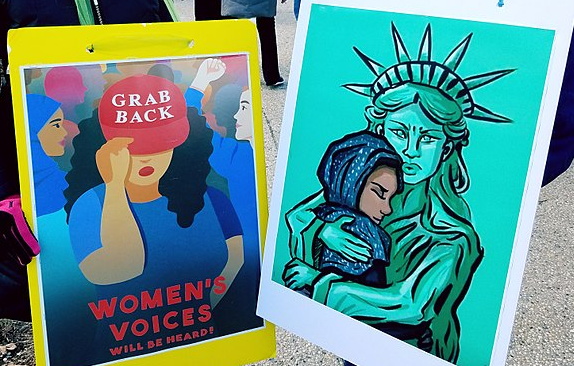To make this culture of sexual harassment a thing of the past requires organizing and mass mobilization.
Published in the December 2017 issue of the New Internationalist.
On 5 October, a New York Times exposé revealed Hollywood movie mogul Harvey Weinstein’s long record of unwanted sexual advances toward young women, particularly aspiring actresses. Subsequent reports, which included first-hand testimonials from targeted women, documented a damning pattern of sexual harassment and assault.
That Weinstein abused his considerable power to perpetuate such exploitation for decades, it turns out, was Hollywood’s open secret. As long as he was producing popular spectacles such as Pulp Fiction and Shakespeare in Love—and minting money for his backers—the industry was willing to keep talk of his predatory pursuits to a whisper.
Weinstein is the latest in a series of high-profile American men—including comedian Bill Cosby, former Fox News CEO Roger Ailes and conservative commentator Bill O’Reilly—whose serial offences against women have erupted into far-reaching scandals. Courageous early accusers of such figures have faced disbelief and retaliation. But once space has appeared for survivors to come forward and be taken seriously, the floodgates have opened.
In the wake of Weinstein’s fall, American women on social media, using the #MeToo hashtag, began sharing their own experiences of degrading treatment: lewd comments on the street and in the workplace, groping on the subway, uncomfortable demands made by bosses in private, abuse in relationships, attacks that were dismissed when reported. Such experiences are not the exception but the rule. In cases involving rape and assault, rarely have perpetrators faced professional or legal consequences.
Viewed in an internationalist context, the US hardly has a corner on misogyny and sexual violence. Indeed, countless women scattered across the globe have since offered their powerful #MeToo contributions.
In a warped way, #MeToo is a sign of progress. Only after decades of hard-won feminist gains is sexual harassment recognized as demeaning and often criminal behaviour, rather than the result of natural transgressions by ultimately harmless cads.
But if the existence of #MeToo represents a victory, it is one that reveals the depth of the problem still before us.
While the US likes to think of itself as a leader in all things, more than 70 nations—including a long list of countries in the Global South—have been led by female heads of state. We have not. And although it may deal a blow to Americans’ stereotyped views of Africa, the country with the highest percentage of women in national parliament is, in fact, Rwanda.
Such measures do not speak to a nation’s success at combating sexual violence, but they do indicate that the US still has plenty to learn from others.
Beyond this, there are some unique challenges associated with toxic masculinity in the US. For one, mass shootings—a distinctly American phenomenon—are overwhelmingly perpetrated by men. Research on incidents between 2009 and 2016 shows that more than half of such shootings also involved acts of domestic or family violence.
And then there’s the pussy-grabber-in-chief. Unlike Cosby, Ailes or Weinstein, Donald Trump was not stripped of power and prestige once evidence of his repeated abuses surfaced. Instead, he became president.
Trump’s election may represent the last gasp of a dying order. He was able to ride into office on a wave of backlash fueled by racism and male entitlement. But there is some reason to hope that this wave might soon crash on the shores of a better world. In the the 1950s and 60s, the KKK and White Citizens Councils initially grew in strength in response to challenges from the Civil Rights movement, as embattled defenders of the old regime dug in to resist change. Yet such organizations soon withered.
Progress, however, is never guaranteed. It requires determined organizing and mass mobilization. If a culture of sexual harassment and assault is to become a thing of the past, we must commit to making it so.
__________
Photo credit: Rob Kall / Wikimedia Commons.
